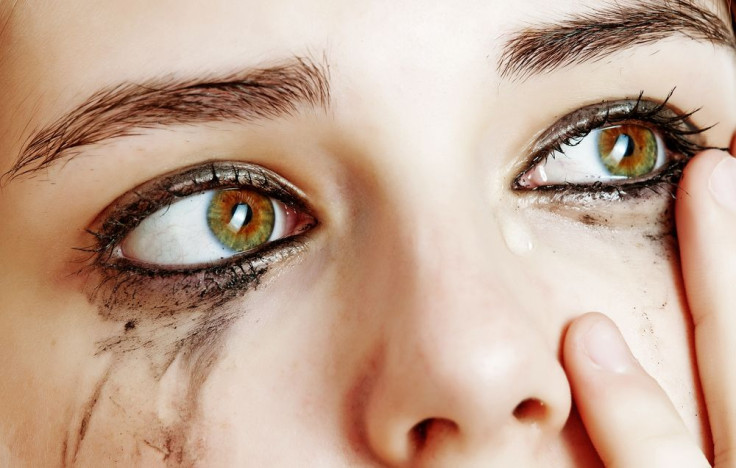Cry It Out: 6 Surprising Health Benefits Of Shedding A Few Tears

We’ve all had a good cry, whether it’s the end of a close relationship, frustration at work, or even a movie. Amid the stream of salty tears sliding down our cheeks, blurring our vision, and making our eyes puffy, we wonder what benefits this state of vulnerability could have on our fragile and delicate psyche?
We produce 10 ounces of tears per day and 30 gallons a year. These tears can either be basal tears, reflex tears, and lastly, psychic, or tears produced by emotion. Although emotional tears do contain higher levels of stress, they have the ability to calm the iris down and signal the emotional state to others.
Sharon Martin, a licensed psychotherapist in a private practice in San Jose, Calif., suggests there are many advantages to having a good cry. “I encourage crying because it purges negative energy and allows for new, positive energy to fill us up. Sometimes people feel embarrassed or ashamed about crying, especially in public. Crying is normal and nothing to be ashamed of,” she told Medical Daily in an email.
It’s time to grab a box of Kleenex, let go of our sorrows, and read the benefits of crying.
1. Releases Toxins
Crying does not only mentally cleanse us, it can cleanse our body too. Tears that are produced by stress help the body get rid of chemicals that raise cortisol, the stress hormone. A study conducted by Dr. William H. Frey II, a biochemist and director of the Psychiatry Research Laboratories at the St. Paul-Ramsey Medical Centre, found like other exocrine processes, including exhaling, urinating, and sweating, toxic substances are released from the body when we cry. Several of the chemicals present in emotional crying are the protein prolactin, adrenocorticotropic hormones, and the endorphin leucine-enkephalin, which reduces pain.
2. Kills Bacteria
A good cry can also be a good way to kill bacteria. Tears contain the fluid lysozyme — also found in human milk, semen, mucus and saliva — that can kill 90 to 95 percent of all bacteria in just five to 10 minutes. A 2011 study published in the journal Food Microbiology found tears have such strong antimicrobial powers they can even protect against the intentional contamination of anthrax. Lysozyme can kill certain bacteria by destroying bacteria cell walls — the rigid outer shell that provides a protective coating.
3. Improves Vision
Tears, made by the lacrimal gland, can actually clear up our vision by lubricating the eyeballs and eyelids. When the membranes of the eyes are dehydrated, our eyesight may become a little blurry. Tears bathe the surface of the eye, says the National Eye Institute, keeping it moist, and wash away dust and debris. Crying also prevents the dehydration of various mucous membranes.
4. Improves Mood
Tears can elevate our mood better than any antidepressant available. A 2008 study from the University of South Florida found crying can be self-soothing and elevate mood better than any antidepressant. The shedding of tears improved the mood of almost 90 percent of criers compared to the eight percent who reported crying made them feel worse. Individuals with anxiety or mood disorders were less likely to experience the positive effects of crying.
5. Relieves Stress
A good cry can provide a feeling of relief, even if our circumstances still remain the same. Crying is known to release stress hormones or toxins from the body, and as a result, reduces tension. Martin believes crying is a healthier alternative to punching the wall or “stuffing your feelings,” which can lead to physical health problems like headaches or high blood pressure. “Crying is a safe and effective way to deal with stress,” he said. “It provides an emotional release of pent up negative feelings, stresses, and frustrations.”
6. Boosts Communication
Crying can show what words cannot express, especially in a relationship. This is mostly seen when a person in the relationship is having a different reaction to a situation that isn’t transparent until tears begin to show. For example, “Someone may be trying to play it cool, or hold it together, or be out of touch with emotions — that are suddenly apparent when one person starts to cry,” April Masini, relationship expert and author, told Medical Daily in an email.
It is at the moment one person bursts into tears that the flow of the conversation shifts toward the emotional aspect the conversation was covering. Masini believes “The crying can quell a fight, emphasize a point not gotten across in words, or simply underscore the importance of the feelings behind the dialogue.”
A good cry or two can naturally heal us both physiologically and psychologically.



























